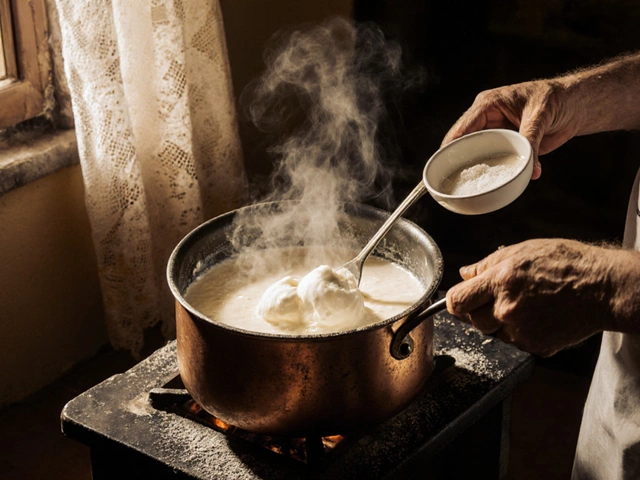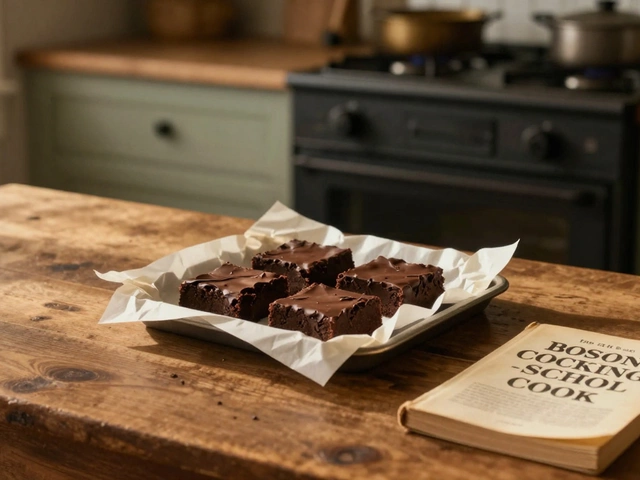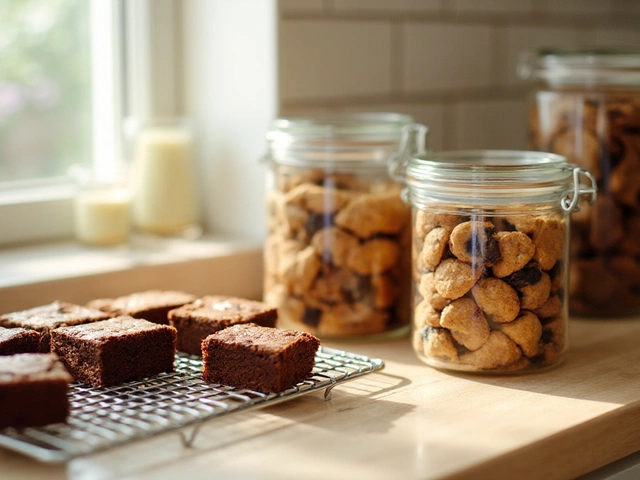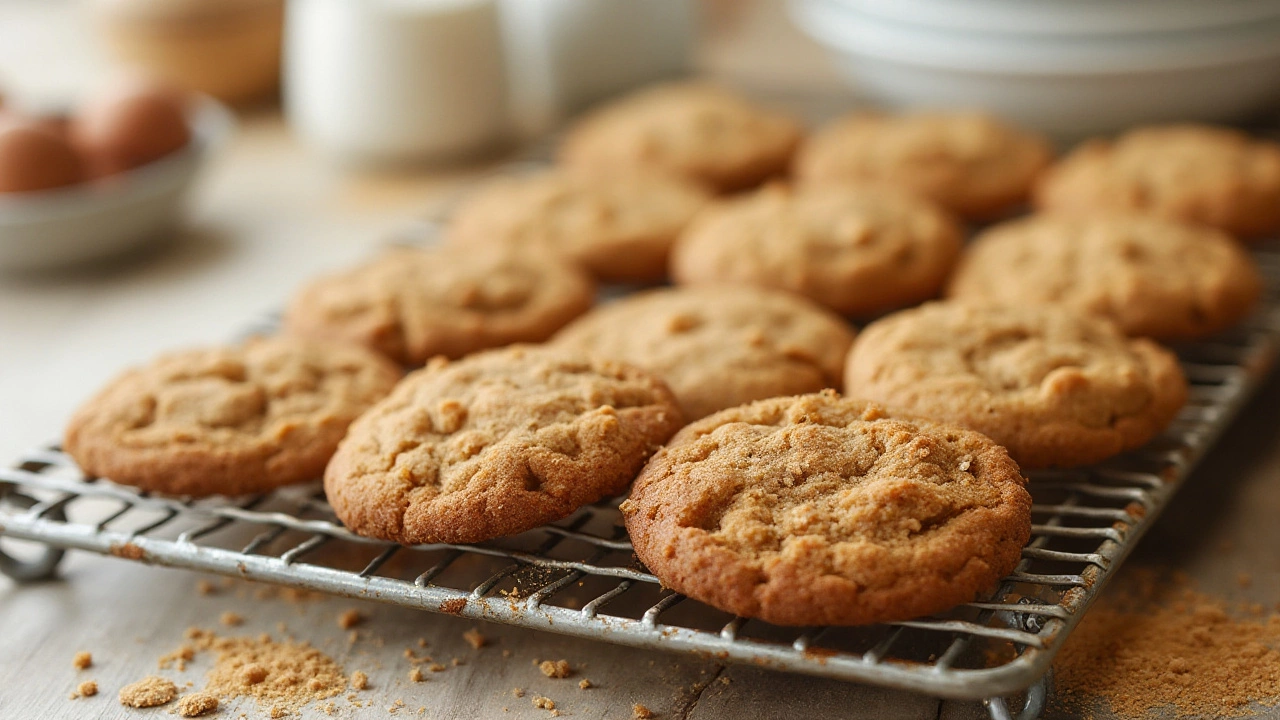
When it comes to baking homemade cookies, every ingredient has a role that contributes to the final culinary marvel. One might think, 'Why would one more egg make any difference?' Well, each component in your cookie dough has its unique job, and eggs are no exception.
Whether you're experimenting with grandma’s timeless recipe or crafting your own version, understanding what an extra egg does can save you from kitchen catastrophes and help you achieve that chewy perfection you crave. Let's dive into the egg's enigmatic enchantment in the cookie world and see how a humble egg can hold the key to your next cookie conquest.
- Understanding the Role of Eggs
- Texture Transformation with an Extra Egg
- Flavor Changes from Extra Egg Addition
- Tips for Perfectly Soft Cookies
Understanding the Role of Eggs
In the world of baking, eggs are much more than just an ingredient; they are the very essence that can make or break your cookies. Eggs in cookie recipes fulfill several key functions. Chief among them is their role as a binder, bringing together dry and wet ingredients into a cohesive dough. This binding capability is essential for achieving the perfect cookie structure. When the proteins in eggs coagulate during baking, they lend the cookie its all-important structure, allowing it to hold its shape and texture.
Moreover, eggs contribute significantly to the balance of moisture in your cookie dough. More often than not, cookies without enough moisture tend to be dry and crumbly. The liquid content in eggs, primarily the whites, ensures that the dough has the right amount of hydration, leading to a soft and chewy result. Adding an extra egg tends to make cookies moister and may alter their texture to be more akin to a cake-like consistency. This transition is why you might notice a distinct difference in cookies when varying the number of eggs in your recipe.
Besides moisture and structure, eggs enrich the dough with fats, primarily in the yolks, enhancing the overall flavor and richness of the cookies. The yolk contains emulsifiers which help in blending fats and liquids in the dough, resulting in a smoother mixture and improved final texture. Such emulsification can contribute to a more even distribution of flavors throughout each bite, ensuring every cookie is a delectable delight. A delightful, less-mentioned fact is how some passionate bakers attribute the golden brown hue of perfectly baked cookies to the magic of eggs, thereby making them visually irresistible.
Interestingly, the leavening power of eggs can also enhance the height and volume of cookies. The proteins in both the white and yolk can trap air, contributing to the lightness and fluffiness, especially if your cookie recipe includes a vigorous beating of the mixture. It's important to note that not all cookie recipes respond to additional eggs the same way, so consider the type of cookies you aim to bake. As the saying goes, “Baking is both an art and a science.” This holds true when manipulating ingredient proportions to finesse the perfect cookie.
A remark from Shirley O. Corriher, biochemist and author, encapsulates this sentiment well:
A lot of baking relies on how well you play with the science – eggs are your living proof of this delightful yet precise game.She suggests that understanding the science behind such simple ingredients can elevate your everyday baking into something truly remarkable.
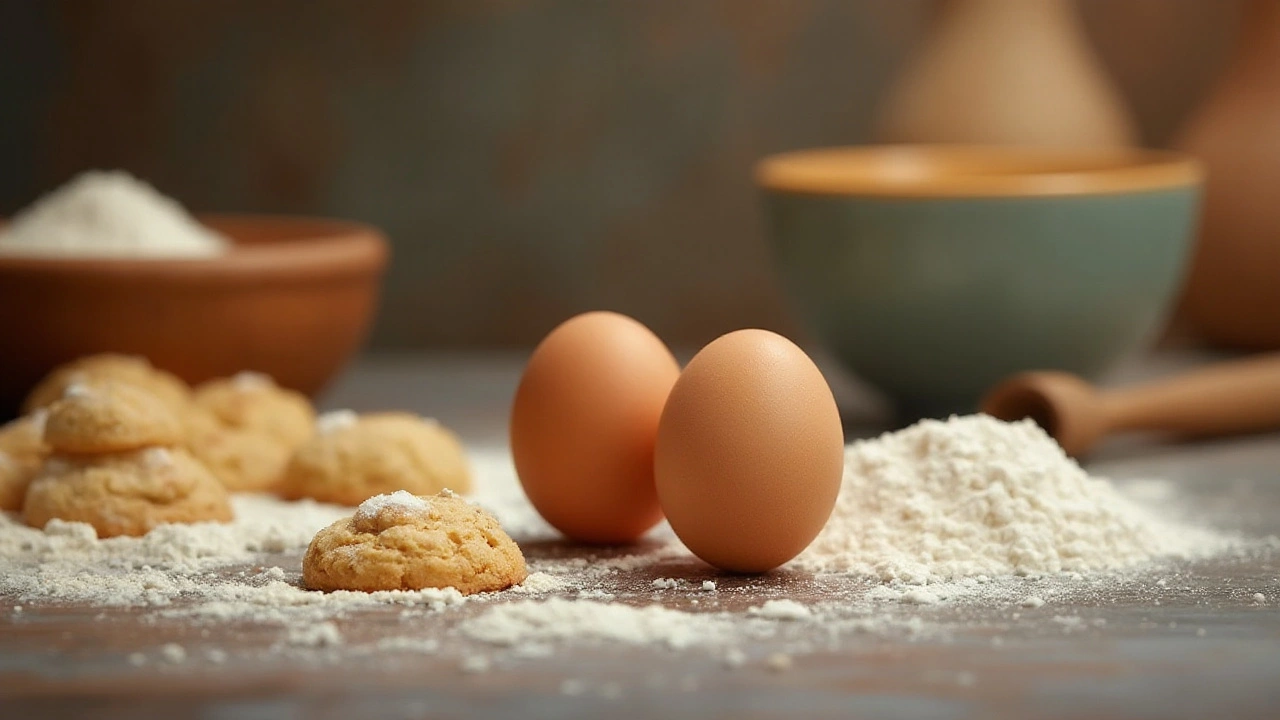
Texture Transformation with an Extra Egg
Adding an extra egg to your cookie mix might seem like a modest modification, yet it fundamentally influences the outcome in exciting and delicious ways. At its core, an egg comprises mainly of water, protein, and fats. These components work harmoniously to give cookies three critical attributes: moistness, crumb structure, and richness. When an extra egg is introduced, it notably alters the internal structure of cookies, making them chewier and softer. This is because eggs act as binders during the baking process, bringing the components together to form a cohesive dough that holds its shape better.
Think of cookies as a delicate weave of flour and sugar that needs a little help from the protein-packed eggs to maintain their delicious form. Proteins in eggs coagulate and create a network that holds the ingredients in place. When the dough bakes, these proteins solidify, giving cookies their tender but firm texture. Moreover, eggs provide moisture, which influences both the softness and shelf life of baked goods. Adding that extra egg, then, turns cookies into a more decadent treat with a softer center and slightly shellacked crust.
Now, why would someone opt to change their classic cookie texture? Some tastes lean towards that quintessential chewy bite rather than a crisp snap. One notable cookie aficionado shares,
"The best part of adding an extra egg might just be the way it creates a pillowy softness inside and out. It's like eating clouds, dipped in chocolate chips."That’s not just imagination, that's science at work in your oven. The extra moisture in the egg slows the evaporation process, letting cookies remain tender for longer.
It’s also important to consider how your sweeteners interact once more moisture is involved. A fascinating thing happens: sugars absorb more liquid, and the cookie dough spreads a bit less, leading to plumper, softer cookies. If your circle of cookie lovers adores chewy results, this simple egg tip might just become your baking secret. Understanding how such little alterations can affect cookie textures can turn any kitchen into a bakery of dreams, with every batch tailored to kiss the taste buds differently. So, whether you’re aiming for chewy, cake-like cookies or a batch that sustains a tender bite over days, that unassuming extra egg can be a game-changer in your cookie adventures.
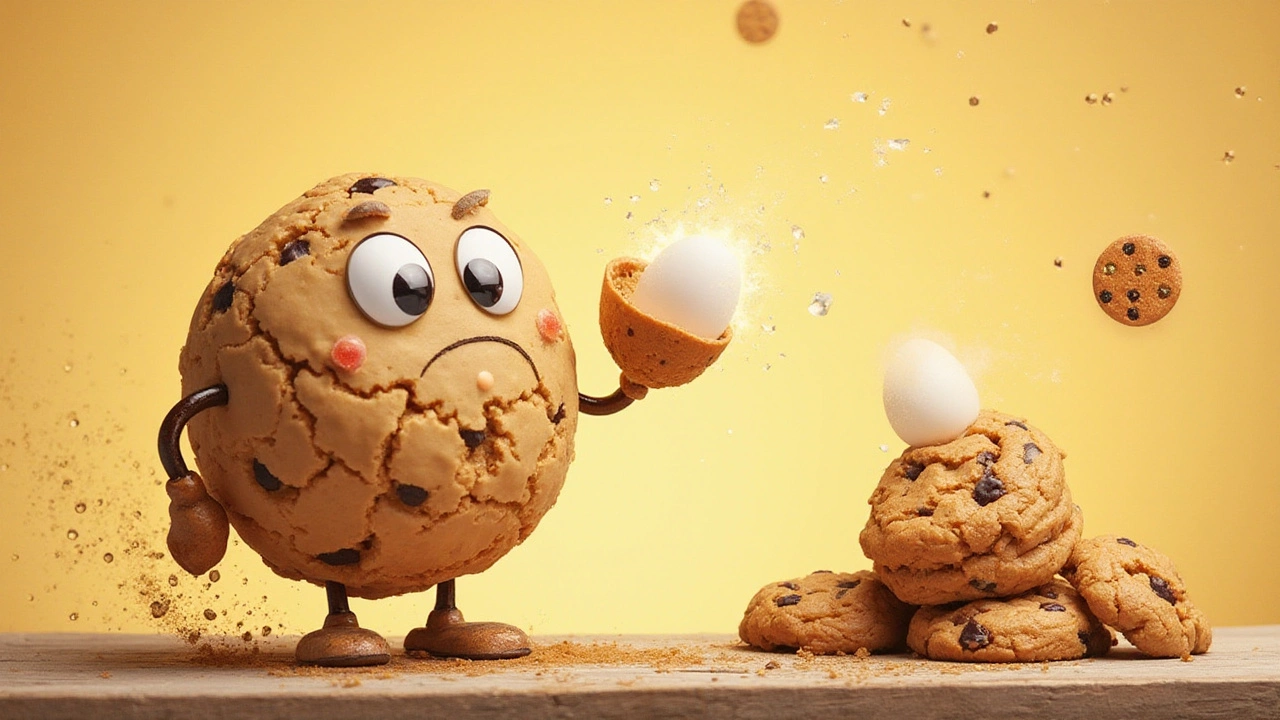
Flavor Changes from Extra Egg Addition
Adding an extra egg to your cookie recipe goes beyond just altering the texture; it also introduces subtle yet significant changes to the *flavor* profile of your cookies. Typically, eggs are not the star of the show in a cookie. However, their presence contributes in ways that magnify other flavors, creating a luscious, harmonious blend of taste.
An extra egg amplifies the richness without overpowering the ideal buttery-sweet balance we love. It provides a subtle depth that can highlight the vanilla extract or any other flavor enhancers you've included. Many bakers have noted a creamy, almost custard-like undertone, which creates a gentle complexity that rounds out the cookie’s flavor. Eggs act as emulsifiers, helping those fats and water components in the dough get along nicely, which means a more uniform *cookie dough* and a smoother taste.
Interestingly, the egg yolk contains significant amounts of lecithin, a natural emulsifier that contributes to a soft yet rich mouthfeel. The science behind this is fascinating; lecithin enhances the way flavors meld together, resulting in a multifaceted taste experience with every bite. An extra yolk from that additional egg means more lecithin, giving the cookie a fuller, richer taste. Here's how the yolk specifically influences flavor: its fats enable a slower release of taste, heightening the lingering notes of chocolate chips or toffee bits.
"Think of an egg as nature's binding agent and flavor booster," says Kelly Faulkner, a renowned pastry chef and culinary teacher. "In a cookie, it whispers heightening compliments to your other notorious ingredients — chocolate, vanilla, or nuts, while ensuring they perform at their best."
The white part of the egg doesn't just contribute to structure and lightness, it also has an impact on flavor. The proteins in egg whites contribute to the browning, Maillard reaction, giving cookies that deeper, more appealing finish we find irresistible. An extra egg white delivers a touch more protein, bumping up the golden color and adding a hint of caramelization.
For those experimenting with an extra egg, a useful tip is playing with complementary spices like cinnamon or nutmeg that can be heightened by the enriched moisture and richness an egg offers. Additionally, try balancing the additional egg with a pinch more salt to counteract any excess sweetness unveiled by the enriched flavors, creating a well-rounded cookie tasting experience.
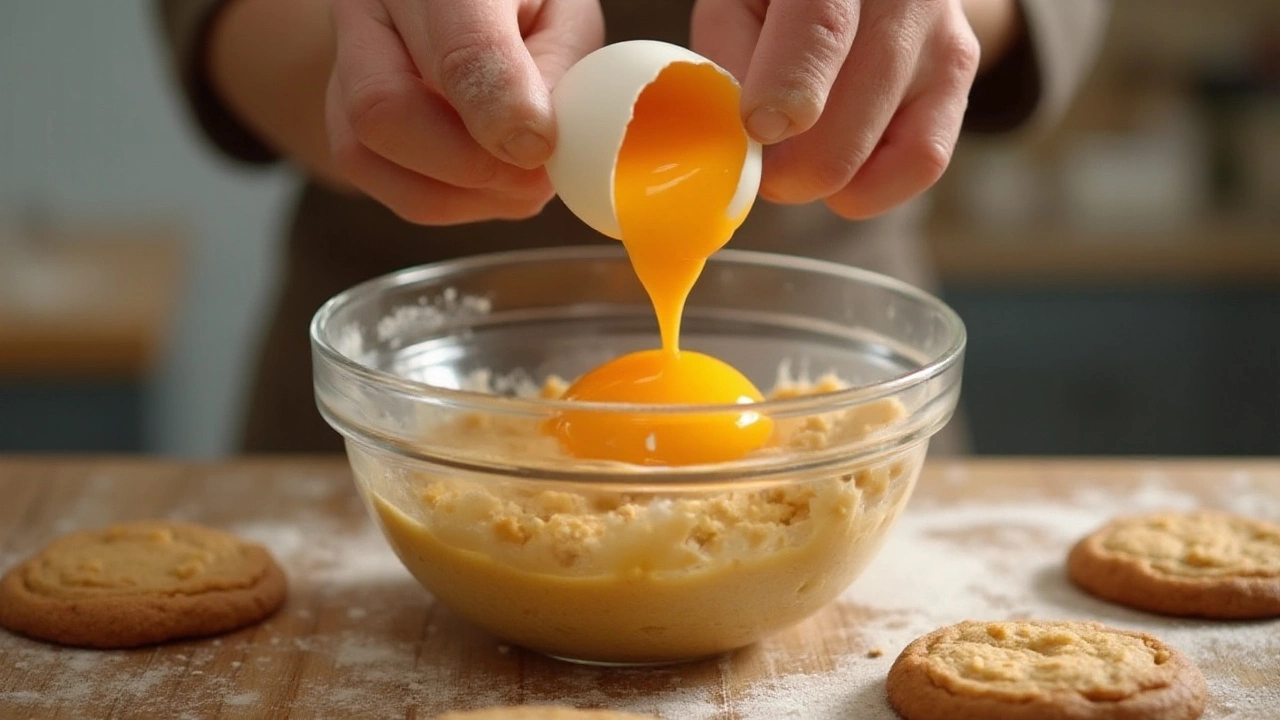
Tips for Perfectly Soft Cookies
Creating perfectly soft cookies is both an art and a science—a delicate dance between ingredients, temperature, and timing. To start with, always choose your ingredients carefully. The quality of your flour can greatly influence the end result. Look for all-purpose flour, which provides the best texture for most cookie recipes. When measuring flour, avoid packing it into the measuring cup. This can compact the flour, adding too much to your dough and resulting in a denser cookie.
Another secret to achieving that desired softness is the type and amount of sugar you use. Brown sugar not only adds a rich molasses flavor but also keeps moisture locked in, leading to a chewy, soft texture. If you're aiming for a truly divine softness, consider using a bit more brown sugar than the recipe calls for, but keep the total sugar amounts balanced to avoid overly sweet cookies.
Cookies rely heavily on the butter-to-flour ratio. Using melted butter instead of softened can also play a pivotal role in your pursuit of the perfect cookie texture. The melted butter incorporates itself more evenly with the sugars and flour, leading to a finer, more tender crumb. However, make sure the melted butter isn't scalding hot, but just warm enough to dissolve sugar effectively.
According to renowned culinary expert Dorie Greenspan, "The temperature of your ingredients matters. Warmer ingredients can alter the way your dough spreads and bakes, giving a softer outcome."
The addition of an extra egg in your cookie recipe contributes significantly to a plush texture. The proteins in eggs work as a binder and add moisture, preventing the cookies from becoming brittle. For an even softer texture, try separating the yolk from the white of the extra egg, then incorporating the yolk only. This hack increases the richness and chewiness, as yolks contain fats that tenderize the dough.
Of course, sufficiently hydrating your dough is crucial, and chilling it beforehand can make a marked improvement. Leave your cookie dough to rest in the refrigerator for at least an hour—overnight for the best results. This process allows the flour to fully absorb moisture, firming up the fat and giving the cookies a thicker, more substantial body when baked. Without chilling, your cookies might spread too thin and lose their chewy nature.
Don't forget about baking technique. Baking at a slightly lower temperature for a longer time can help achieve consistent softness. Lower heat prevents the outside from becoming overly crisp before the interior sets. Rotate your baking sheets halfway through the process, ensuring even cooking. Once out of the oven, let cookies cool on the tray for a few minutes before transferring them to a wire rack. This allows the residual heat to finish the cooking internally, maintaining a soft and gooey center.

